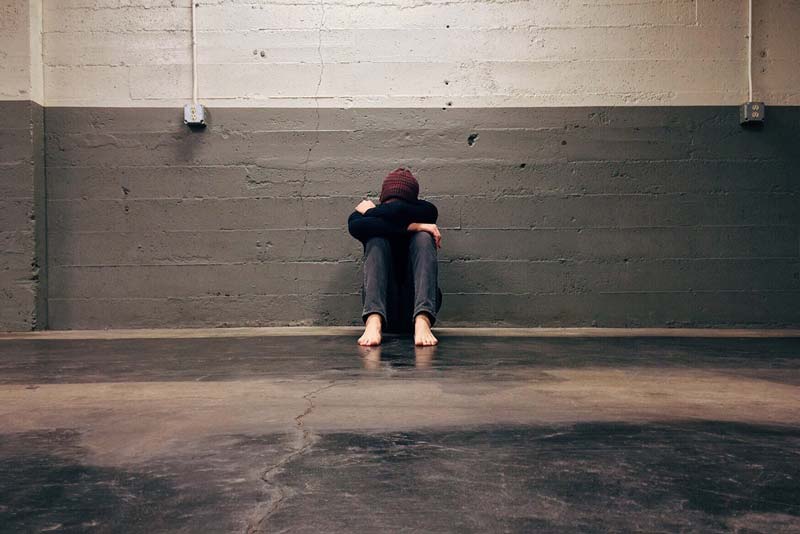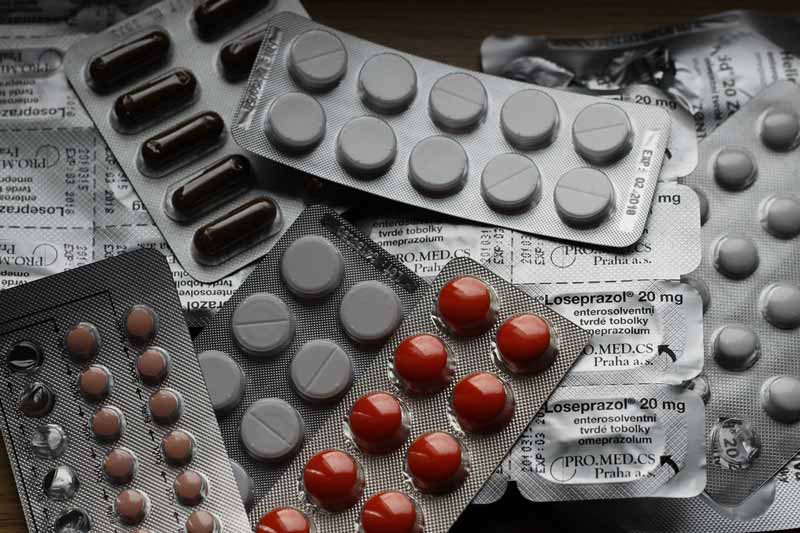Depression is a critical psychological disorder with early signs and symptoms of sadness, anxiety, and guilt. In severe cases, depression manifests as frequent episodes of ‘blues’, loss of interest in everything including those activities you once enjoyed, extremes of irritation and low mood, and even an intense urge to suicide if left unnoticed.
Depression is a dangerous disease of the brain and it is harder to identify it earlier because depression is usually mistaken as sadness. Also, depression is not only bad for your mental health but your physical health could also be at stake if depression is not treated properly. Extensive research work has gone into unravelling the malaise that is depression. Hence a large number of therapies have been formulated to identify and treat both mild and severe cases of depression.
What causes Depression?

Depression is a mysterious disease with complex etiology. It is supposed that several psychological, biological, and social circumstances provoke depression. However, there is no single cause of depression; certain triggers initially stimulate anxiety attacks, feeling of worthlessness, unexplained sadness, guilt, and then these all ultimately leads to depression disease. Further, some possible and well-known reasons or risk factors of depression may include the following:
- Brain and Depression
Mind is the main culprit behind depression. There are specific brain chemicals that are critically important in maintaining a connection between different parts of the brain and brain cells. These chemicals are called “Neurotransmitters” and whenever there is fluctuation in their normal levels, symptoms of depression take place. In addition to it, some structural changes in the frontal part of the brain are also noted in depressed people.
- Family history
Family history and genetics play a key role in the onset of depression. While trying to figure out the causes of depression, many medical experts find out that a positive family history of depression is the major reason for developing the disease in upcoming generations. Surprisingly, about 50% of cases of clinical depression are because of inherited pathologies while the other 50% may arise due to other emotional, psychological, or environmental factors.
- Personal and social reasons
If you have poor relationships with your family and friends, suffered from traumas in childhood, avoid people and stay alone for the most of day then there is a strong likelihood of developing depression later in life.
Similarly, having personality traits like perfectionism, taking too much stress and anxiety, having low self-esteem and poor self-image also predisposes you to a higher risk of depressive episodes.
- Secondary reasons
Depression can also develop due to some other critical or life-threatening illnesses. For example, the majority of depression cases are reported in people who are already suffering from severe health problems such as kidney failure, heart diseases, serious fractures, various types of cancer, and many other serious mental problems. Besides, insomniac and bedridden patients are also at a higher risk of becoming depressed.
- Addictions and Substance abuse
Addicts are also on the verge of developing depression due to poor coping skills and declining mental health. Alcohol abuse, addiction to drugs, or overusing other substances that could provide short-term relief from the pain, or give a euphoric sense of relaxation, may also increase your chances of clinical depression, which is the major type of depression.
Signs & Symptoms

Even though depression is difficult to diagnose in its early stages but there are some signs and symptoms that manifest as soon as depression develops. Following are some symptoms of the disease that could range from mild to severe.
- Continuous feelings of low self-esteem, guilt, worthlessness, and sadness.
- Loss of energy, motivation, and pleasure in everyday chores and no more interest in activities you once enjoyed.
- Insomnia, changes in sleep patterns, unable to concentrate or maintain focus.
- Alterations in eating habits i.e., eating less and over-eating, lead to unhealthy weight gain or loss.
- Social withdrawal, annoying behavior, aggressive attitude, difficulty in conveying emotions, and poor communication skills.
- In severe cases, depression could be the reason behind physical ailments and body pain.
- The urge to kill oneself is another alarming manifestation of major depressive disorder.
Management of Depression
Management of depression ranges from simple modifications in everyday life to complex medical and psychological interventions. Some of the widely used treatment options are:
- Lifestyle Modification

- Simple modifications in lifestyle are enough if you encountered mild episodes of depression. You should consider habits of exercising 4 times a week, eating a diet based on vegetables, fruits, and whole grains, getting yourself more engaged in social activities, and avoiding alone time. Also, meditation and mindfulness techniques are amazingly beneficial for the management of depression and anxiety.
- Medication

Anti-depressants are widely used to manage mild and severe cases of depression. Commonly, people prefer medicines over other treatments as medicines are readily available, have greater efficacy, and provide fast results. But anti-depressant comes with adverse side effects, for instance, violent behavior, agitation, suicide attempts, and uncontrolled anxiety. Therefore, your doctor would combine anti-depressants with psychotherapy and this combination provides the best outcomes and hence, is now regarded as the most favorable treatment strategy known for depression.
- Psychotherapy
Psychotherapy is the treatment of choice for the management of depression. Often, Cognitive-behavioral therapy (CBT) and Interpersonal Therapy (IPT) are practiced to psychologically treat depressive patients. In CBT, a psychologist helps you to improve your self-image and enhances your self-esteem. You will learn to change your way of thinking and shift from a pessimistic approach to an optimistic point of view. In this way, you would be able to recognize your life problems and also get enough strength to solve them. While in IPT, you will be able to polish your communication skills, improve interpersonal relations, and learn how to have a better social life.
- Brain Stimulation
In extreme cases of depression, when all other interventions have failed to provide desirable results or you may have developed depression that isn’t responding to any treatment, then your doctor may proceed to brain stimulations. Electroconvulsive therapy (ECT) is a type of brain stimulation in which currents are used to correct the chemical imbalances in the brain.
Is depression preventable?
Unfortunately, you cannot prevent depression. Even minor, insignificant triggers can lead to major depressive episodes. Nevertheless, you can follow some important steps that not only protect you from depression but also strengthen you to better cope with depression.
- When you notice even minor signs of depression, seek help from experts as early as possible and get prompt medical treatment.
- Exercise daily and eat a healthy diet that is free of processed foods and full of fruits and vegetables.
- Try to avoid alone time as much as possible. Instead, surround yourself with your loved ones and be socially active.
Conclusions
Depression is not inevitable. You can live depression-free life by adopting a healthy lifestyle. For this, make yourself a priority, eat healthily, be more active and exercise daily, be confident and have faith in yourself. In case you observe depression symptoms in yourself, then just don’t worry. Never ignore or suppress your emotions, and seek help as early as possible to live a happy and healthy life.
Also Read:
- Can Vegan Protein Address Protein Deficiency?
- 11 Foods Suggested By Shubi Husain To Keep Your Colon Healthy
- Top 10 Foods For People Who Had Omicron Once
- Are You Suffering From Depression? Here’s What You Must Know
- India’s First Multi-Organ Transplant Performed For Rare Genetic Liver Disorder
- Spreading Awareness Via The 12th Indian Organ Donation Day – MGM Healthcare



























